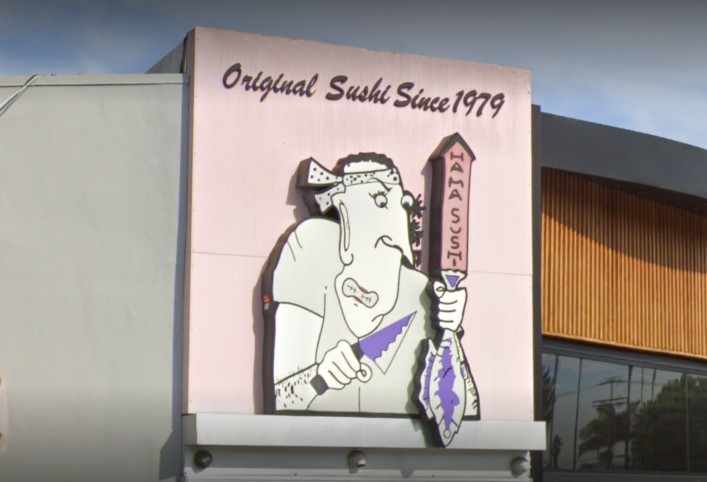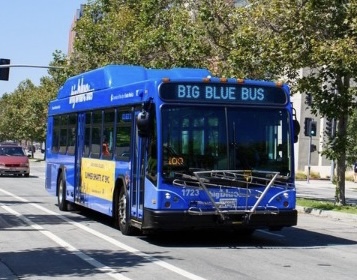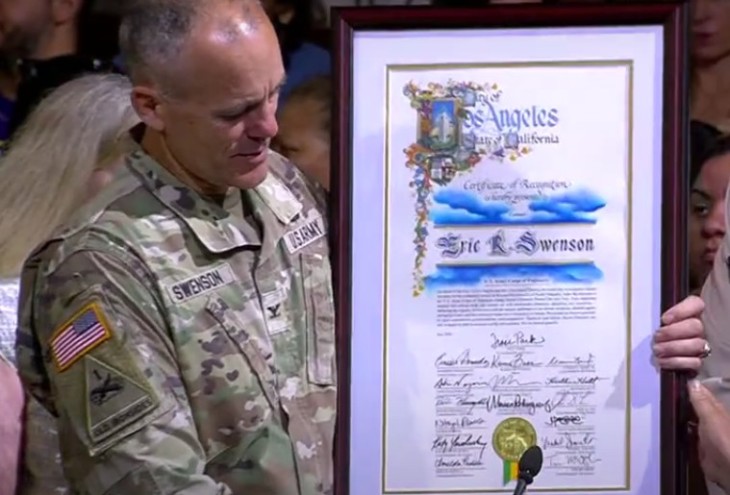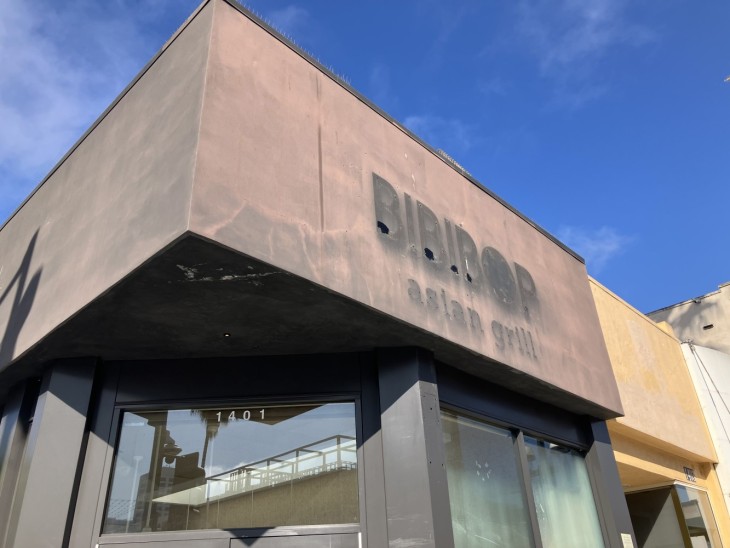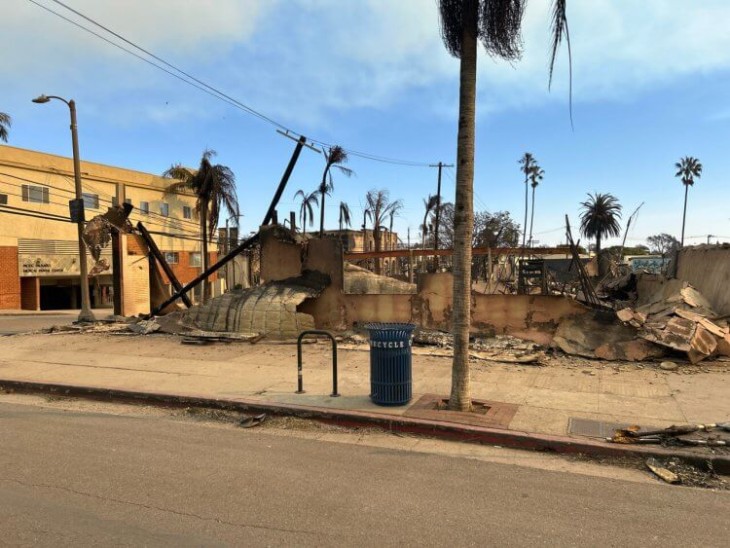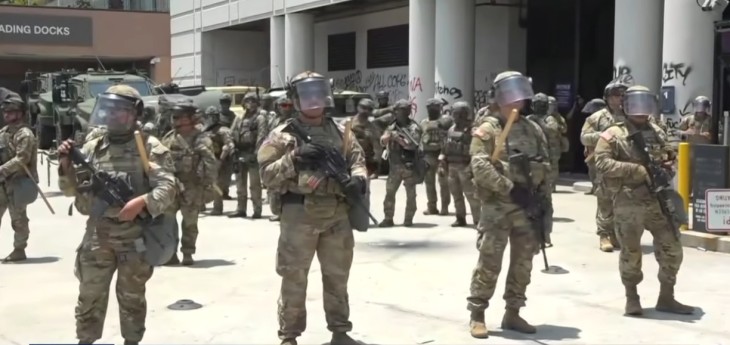The lawsuit challenging VA policies that deny permanent housing on the West Los Angeles VA campus to veterans will now go forward, after the federal court in Los Angeles denied, for the most part, defendants’ motion to dismiss the case.
On Friday, March 16, U.S. District Court Judge James Otero issued a 41-page decision in Valentini v. Shinseki denying the motion to dismiss that had been filed last October by defendants Eric Shinseki, Secretary of the U.S. Department of Veterans Affairs (VA), and Donna Beiter, Director of the VA Greater Los Angeles Healthcare System (GLAHS) as to three of the six claims presented in the complaint.
The class action suit was filed in June 2011 by disabled homeless veterans and the Vietnam Veterans of America, charging that “the VA has eliminated permanent housing for disabled veterans, many of whom now literally sleep outside its walls, and it now leases portions of the property to private companies.”
John Ulin of Arnold & Porter LLP, one of plaintiffs’ lawyers in the suit, said, “Thanks to this afternoon’s brave and careful decision by the United States District Court, (veterans) will, at least, have an opportunity to convince the court to compel the Veterans Administration of Greater Los Angeles to do what it should have been doing all along – provide them with the housing and services they need to escape homelessness and use the West L.A. VA campus to house and serve veterans.”
Judge Otero’s March 16 ruling denied the motion to dismiss plaintiffs’ claims that various land use deals for non-veteran-related uses were unlawful violations of the Administrative Procedure Act.
He also denied the motion to dismiss as to two claims for violation of section 504 of the Rehabilitation Act, although he required plaintiffs to amend their complaint as to one of those claims.
Under these claims, plaintiffs charge that the VA discriminates against veterans with severe disabilities and that such veterans do not have meaningful access to VA treatment unless that treatment is accompanied by permanent stable housing.
The ruling did dismiss three claims that alleged the VA breached a trust established by the 1888 deed under which the property was donated by Santa Monica founders John P. Jones and Arcadia B. de Baker to be “permanently maintained” as a home for veterans.
Judge Otero ruled that the deed did create a trust under which the VA is a trustee and veterans are beneficiaries, and that 1866 Congressional action authorized the government to accept the property subject to the trust, but that the government’s trustee obligations are not enforceable in the absence of an explicit statute. “While this result may seem shocking, this is the result the law dictates,” said the court.
In this last connection, Judge Otero said, “If the allegations of the [plaintiffs’ complaint] are true, the Government has essentially ignored the unenforceable promise it made with respect to much of the donated land that is now part of the (West L.A.) Campus.”
Plaintiffs’ statutory claims will now proceed toward trial under the ruling, which followed extensive briefing by the parties and by amicus curiae Metabolic Studio and the City of Santa Monica, both of which appeared on behalf of plaintiffs.
In a separate development, the plaintiffs have asked the court to set the case for trial in June, stating that it was “clear that mediation is not a viable avenue for chronically homeless veterans to obtain the relief they seek from (the VA) in this case.”
The VA GLAHS did not respond to a request for comment on the decision.
Mirror contributor Terence Lyons is also the veterans news correspondent for the Strawberry Bulletin, a publication of the Metabolic Studio where he writes and edits news and features that focus on veterans’ affairs, including housing issues and VA land use. He is a U.S. Army veteran.

